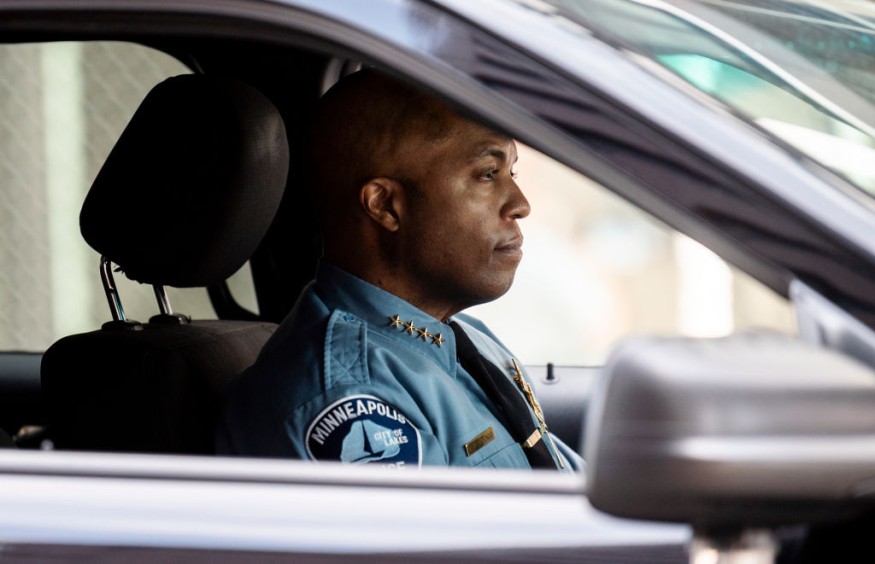"That Violates Our Policy," Minneapolis Police Chief Says During Chauvin Trial

The Minneapolis police chief has testified on Monday during former police Derek Chauvin's trial on the killing of George Floyd.
Minneapolis Police Department chief Medaria Arradondo said in court that Chauvin had failed to follow their department policies on the use of force, de-escalation, and the duty to give aid to people who need it.
"I absolutely agree that violates our policy. That is not part of our policy; that is not what we teach," Arradondo was quoted in The New York Times report.
Arradondo also added that Chauvin has violated the department's training policies and its "values" by kneeling on Floyd's neck after he had stopped resisting.
The police chief added that the use of force was reasonable during the "first few seconds" of the arrest. However, it should have ended quickly.
Arradondo added that it is not in their training to indefinitely place their knee on a handcuffed individual indefinitely.
"Once Mr. Floyd had stopped resisting, and certainly once he was in distress and trying to verbalize that, that should have stopped," Arradondo was quoted in an AFP News report.
The Minneapolis police chief was questioned by prosecutors about his history with the police force, department policy, and officer training.
Defense attorney Eric Nelson also started his cross-examination of Arradondo, asking him how long it has been since he last arrested a suspect.
This was answered by Arradondo by saying that it has been many years since then.
Nelson's questioning focused on the difference between departmental best practices and policy to the situational nature of the department, according to a CBS Local report.
Nelson asked if he would agree that the use of force is not an attractive idea, which Arradondo answered that it is something most officers would rather not use.
Hennepin County Medical Center Testimony
The doctor who treated Floyd also testified on Monday.
Bradford Wankhede Langenfeld said that Floyd was in cardiac arrest when he arrived, adding that 30 minutes of trying to revive him was not successful.
Langenfeld noted that the most likely reason behind the cardiac arrest was lack of oxygen.
Prosecutors are trying to prove that Floyd's death was due to asphyxiation, while defense attorneys claim that it was due to illegal drugs in Floyd's system.
However, Langenfeld said that the paramedics who brought the Black man to the hospital did not mention any drug use or any possibility that he might have overdosed.
Charges Against Chauvin
Chauvin is charged with second-degree murder and third-degree murder. On top of his two charges is manslaughter.
He was reported to have pressed his knees into Floyd's neck for nine minutes and 29 seconds as Floyd lay prone and handcuffed.
A bystander has recorded the arrest, wherein Floyd was heard pleading for air. The video went viral and caused an eruption of protests across the country.
There were three other police officers involved in the arrest, namely Thou Thao, J. Alexander Kueng, and Thomas Lane.
They are set to be in trial separately later this year.
WATCH: Chauvin trial: 'Absolutely that violates our policy' police chief says of former officer's actions -from Fox 4 Now
Subscribe to Latin Post!
Sign up for our free newsletter for the Latest coverage!
© 2026 Latin Post. All rights reserved. Do not reproduce without permission.













